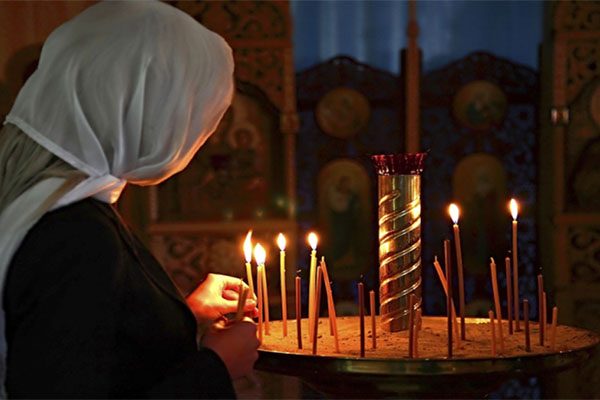I’ve never been much of a one for religion. I know that may sound crazy because it’s obvious from my byline that I am a priest of the Orthodox Church and therefore I am deeply involved in what we consider religious activities, like leading worship. But hold on a couple minutes and let me explain.
In the schools where I trained, we were taught to look carefully at our faith and at other forms of religion to see if there wasn’t some difference among them. Nobody pushed you to conclusions, as I recalled, but it became somewhat obvious that there was one central difference between the way of following Christ and other pathways.
In the other pathways we explore, people were searching for God. That was the primary movement – from this world to the next, so to speak. In Christianity and its sister faith Judaism, however, God searches for people. In fact that’s the theme of one of my favorite books out of the Jewish world, by the great rabbi Abraham Joshua Heschel. One old story says that God gets up in the morning, hides in the creation, and then waits in hope that people will find him. But he took the first step and came to us.
I know that a lot of people, even if they don’t know it or can’t put it into words, are searching for God in a difficult and perplexing time. But searching can be truly endless. You can be a seeker all your life and never come home. And that searching for God, with or without a sense of finding God, is what characterizes “religion.”
We Christians hold, however, that God took the ultimate step of entering the human predicament lock, stock, and barrel. God takes the initiative. God comes from another world into this one to announce that he’s going to gather us all up in his arms again – and then does it through a cross and rising to new life.
Our human condition, blemishes and beauty marks alike, has been taken up into God because God came among us as a human being. That’s the core of Christian faith. St Cyril of Alexandria put it this way: everything that we are has to be brought back into communion with God, or none of it is. You can’t leave out stuff, particularly the “bad” stuff.
I’ve known quite a few people, in fact, who left churches because they could not or did not feel that they were accepted. They hid from other people because they thought – rightly or wrongly – that the others would not accept them for who they were. So they hid their indiscretions, their divorces, their bad relationships with children, their addictions, and so forth. Apparently they thought that they would not be accepted if they admitted to – what? – being fully human. But you cannot be healed if you are not willing to have God reach into every corner of your life and bring wholeness once again.
All of us are separated and alienated from God and from others. We are also alienated from our deepest selves. Christ came to restore our deep selves and to bring us back into communion with others. He does this precisely by once again opening our clogged relationship with God. If a church does not communicate this properly, then we have fallen into the trap of religion, which is to keep people reaching beyond this world for some imagined fulfillment, rather than allowing God to heal us here and now.

















